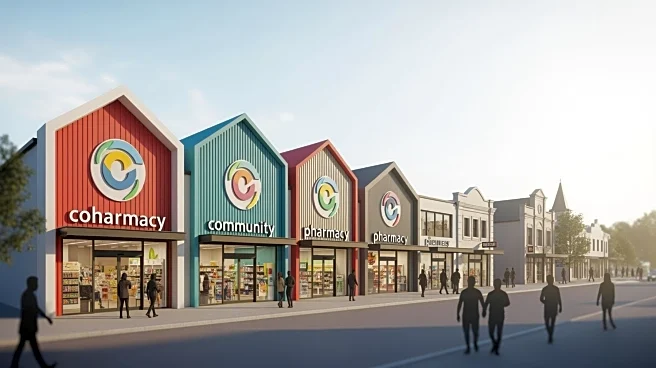What's Happening?
CVS Health is set to open nearly 100 community-focused pharmacies this year, including over 60 locations acquired from the bankrupt Rite Aid in the Pacific Northwest. This expansion comes after CVS had announced plans to close 271 stores earlier in 2025
as part of a strategy to save $2 billion. The new stores will feature small-format designs and aim to enhance local access to healthcare. CVS has also acquired prescription files from 626 former Rite Aid and Bartell Drugs pharmacies across 15 states, further solidifying its presence in the pharmacy sector.
Why It's Important?
The expansion of CVS into community-focused stores represents a strategic shift in the retail pharmacy landscape, emphasizing the importance of face-to-face healthcare services. This move could significantly impact local communities by improving access to pharmacy care, especially in areas previously served by Rite Aid. It also highlights CVS's commitment to maintaining a strong brick-and-mortar presence despite earlier plans for store closures. The acquisition of Rite Aid assets allows CVS to broaden its market reach and potentially increase its customer base, which could lead to enhanced revenue streams and competitive positioning in the pharmacy industry.
What's Next?
CVS's expansion may prompt reactions from competitors in the pharmacy sector, potentially leading to similar strategic moves to enhance community engagement and healthcare access. The company might continue to explore opportunities for further acquisitions or partnerships to strengthen its market position. Additionally, CVS's focus on community pharmacies could influence public health policy discussions, emphasizing the role of local pharmacies in healthcare delivery.
Beyond the Headlines
The shift towards community-focused pharmacies could have broader implications for healthcare accessibility and public health outcomes. By prioritizing face-to-face interactions, CVS is addressing consumer preferences for personalized care, which may lead to improved patient satisfaction and adherence to medical advice. This approach could also foster stronger community ties and support local economies by creating jobs and stimulating business activity in the areas where new stores are opened.
















